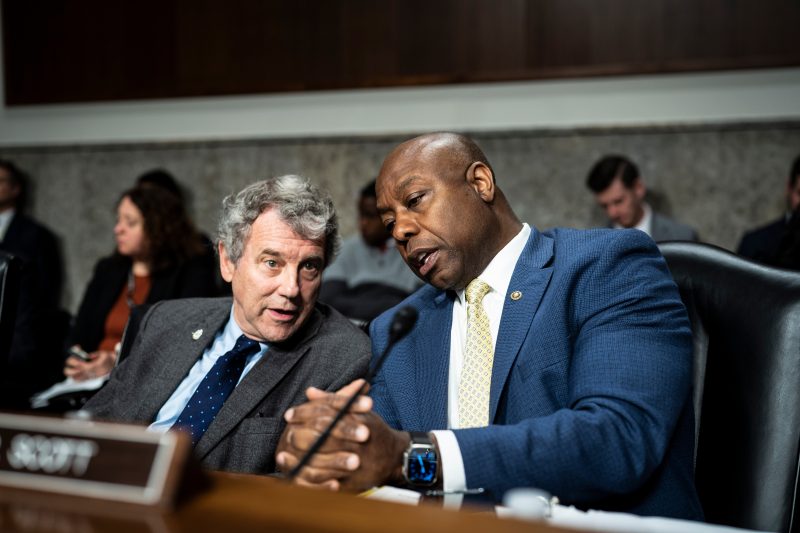Senators overseeing the banking industry are taking their first step in an attempt to punish executives who preside over failures like the March collapse of Silicon Valley Bank.
Sens. Sherrod Brown (D-Ohio) and Tim Scott (R-S.C.), the leaders of the Senate Banking Committee, on Thursday unveiled a bill empowering regulators to seize bank executives’ compensation from the 24 months leading up to a failure. In addition to their salaries, executives could be forced to forfeit bonuses and profits from the sale of bank stock.
The bill also triples to $3 million the civil penalty that regulators could assess on an executive who “recklessly” violates the law or engages in “unsafe and unsound practices.”
“Americans have watched executives take their money, run banks into the ground, and get away with it too many times before,” Brown said in a statement. “It’s time for CEOs to face consequences for their actions, just like everyone else.”
Financial regulators continue to investigate the collapse of Silicon Valley Bank, whose failure rattled the sector and led to federal intervention. The introduction of the bill from Brown and Scott came on the same day as a Wall Street Journal report that said the Federal Reserve and the Securities and Exchange Commission are examining the role of Goldman Sachs, which bought SVB’s securities portfolio while advising the troubled bank on raising capital before it folded.
Goldman Sachs acknowledged in a May filing that it is “cooperating with and providing information to various governmental bodies in connection with their investigations and inquiries” into Silicon Valley Bank’s collapse.
SVB’s collapse came a few years after it embarked on push for rapid growth. An April 28 report from the Federal Reserve placed the bulk of the blame for the bank’s crash on lax oversight by regulators and mismanagement by executives. It also sharply criticized consultants who “failed to design an effective program” for assessing SVB’s problems.



























